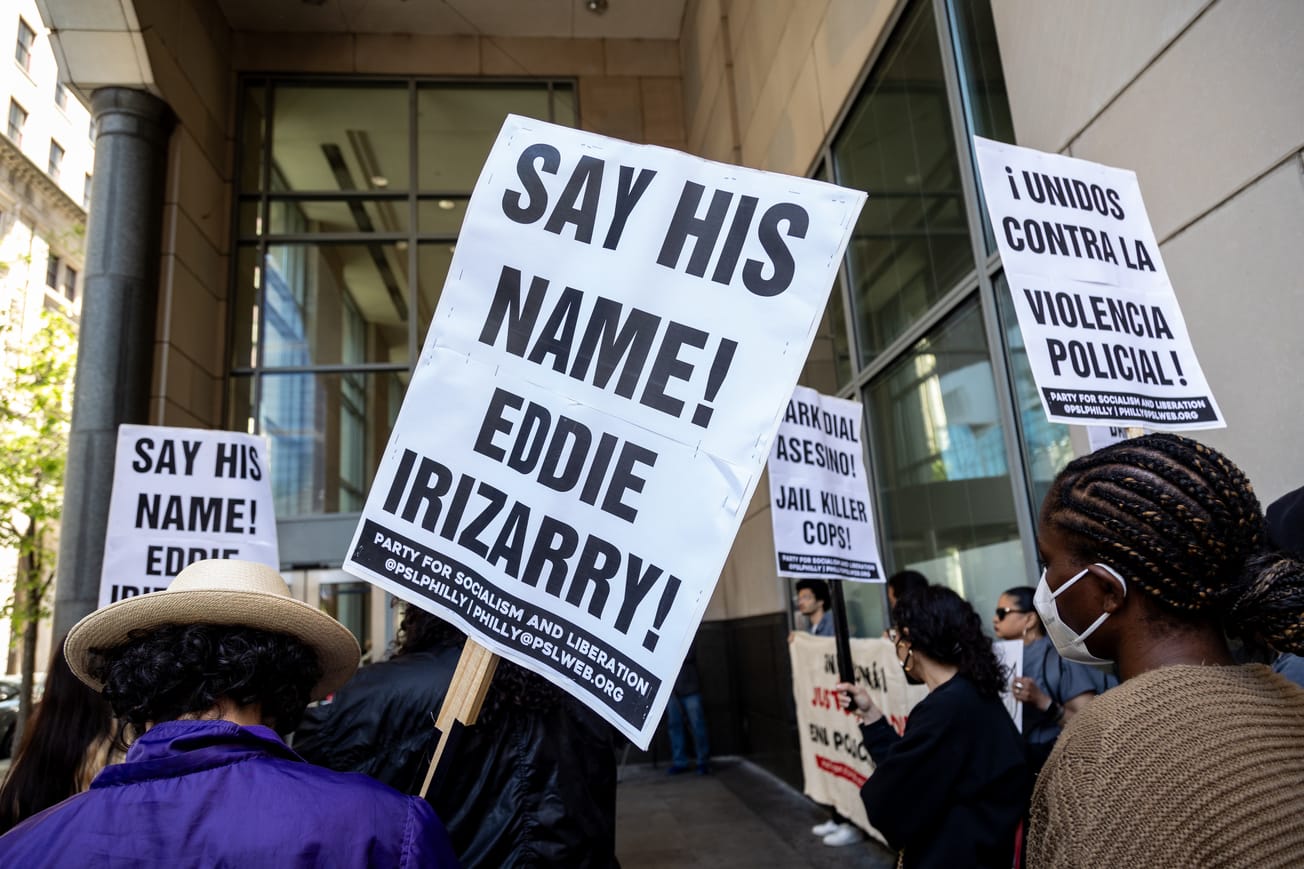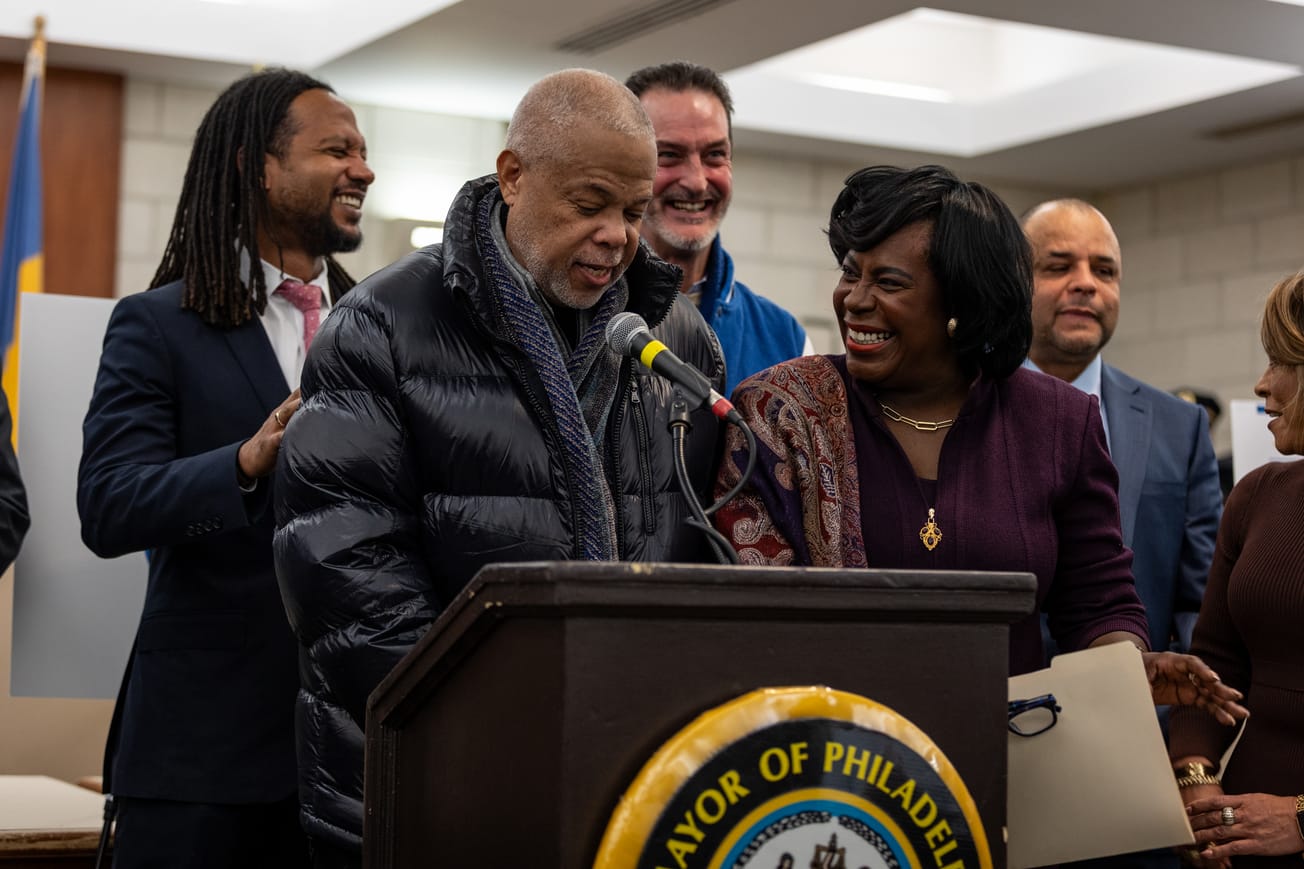About 40 people disrupted a criminal legal system panel at the Parkway Central Free Library on Tuesday night to protest the recent deaths of Amanda Cahill and Michael McKinnis, the inhumane conditions inside Philly jails, and call for an end to mass incarceration.
The panel event was part of the “Justice 101” series organized by the Eastern State Penitentiary, entitled “Excessive Punishment and Mass Incarceration,” and featured Michael Resnick, the Philadelphia Department of Prisons Commissioner. It was facilitated by Kerry Sautner, President and CEO of the Eastern State Penitentiary Historic Site.
About five minutes into the panel, the moment Sautner introduced Resnick, Amanda Cahill’s cousin, Kayden Hujack, and at least half of the audience stood up and demanded justice for Cahill, 31, who died in a Philly jail cell following a Kensington police sweep that targeted narcotics offenses and open warrants earlier this month.
“Under your watch, my cousin Amanda Cahill died,” Hujack said. “For hours, women in their cells banged on their doors. They all called for help. Nobody came. How does that make you feel?”
According to multiple first-hand accounts from other women who were incarcerated near Cahill, she was screaming for help, and others banged on their cells for hours trying to get her medical attention.
“The [Philadelphia Department of Prisons] killed her. Justice for Amanda Cahill,” Hujack said. “You took my cousin’s life. She suffered for six hours and 45 minutes.”
“She suffered for six hours and 45 minutes,” the demonstrators repeated in a call and response.
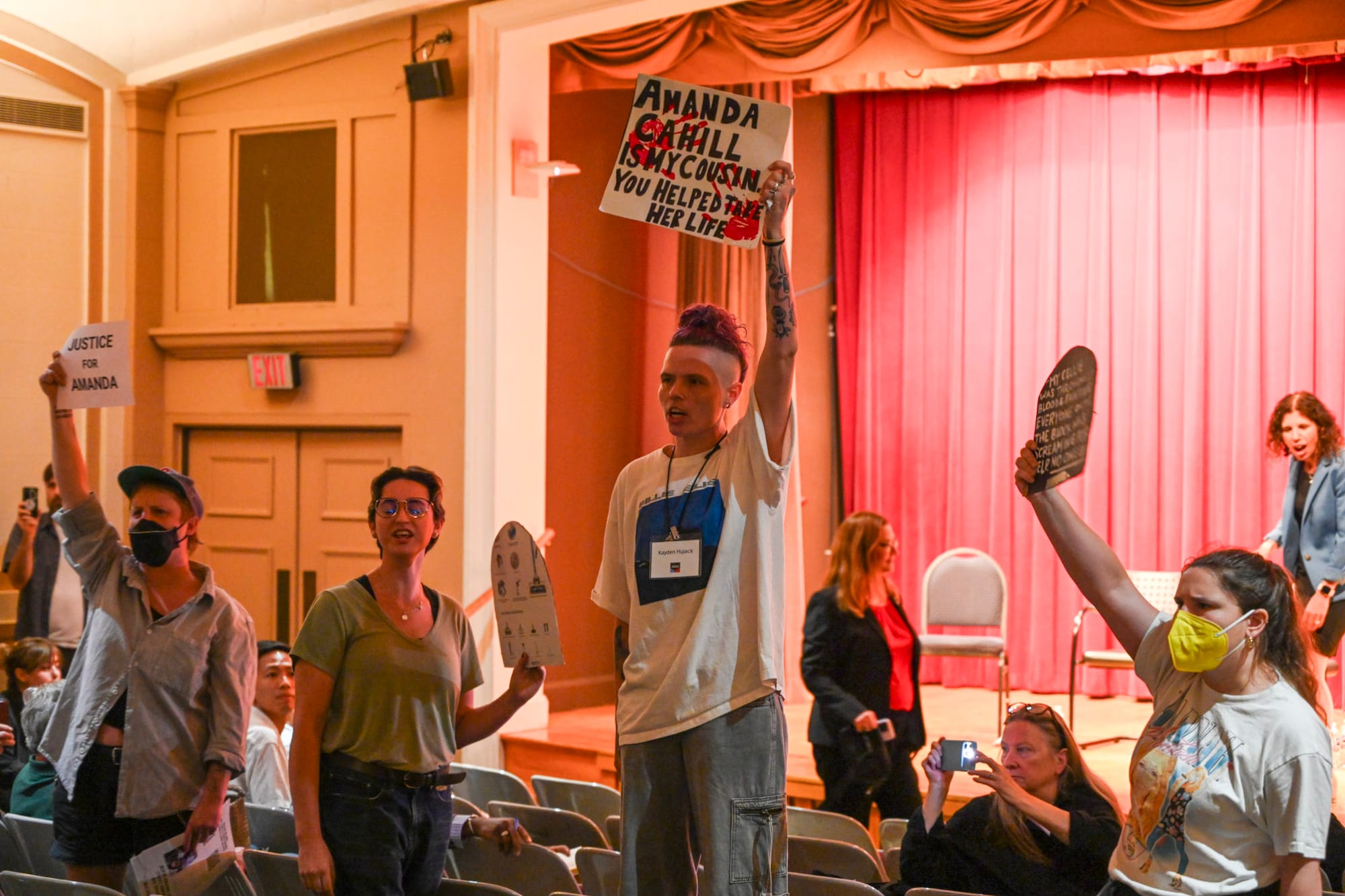
More demonstrators read testimonies from other people inside Philly jails.
“I am pregnant and I’m in solitary confinement. I am 16, and I have not been outside for a year. I watched a woman hang herself. The guards watched as I was stabbed 14 times. The guards sexually assaulted me. I am scared I will die here,” demonstrators said in unison.
“You are torturing our families. You have blood on your hands. End the torture now. Justice for Amanda. Close the Philly jails now. Michael Resnick, you have blood on your hands,” the group continued.
Shortly after protestors interrupted, Resnick and Sautner left the stage along with fellow panelists Lauren-Brooke Eise, the Senior Director of the Brennan Center’s Justice Program, Wadud Ahmad, founding partner of the Philadelphia law firm Ahmad Zaffarese, and Kathy Foer-Morse, who now is a criminal justice advocate after she was incarcerated for grand larceny.
The panel never restarted.
“[Resnick] can’t even look at me in my face. You killed my cousin. You walk away, you coward,” Hujack said. “How do you sleep at night?”
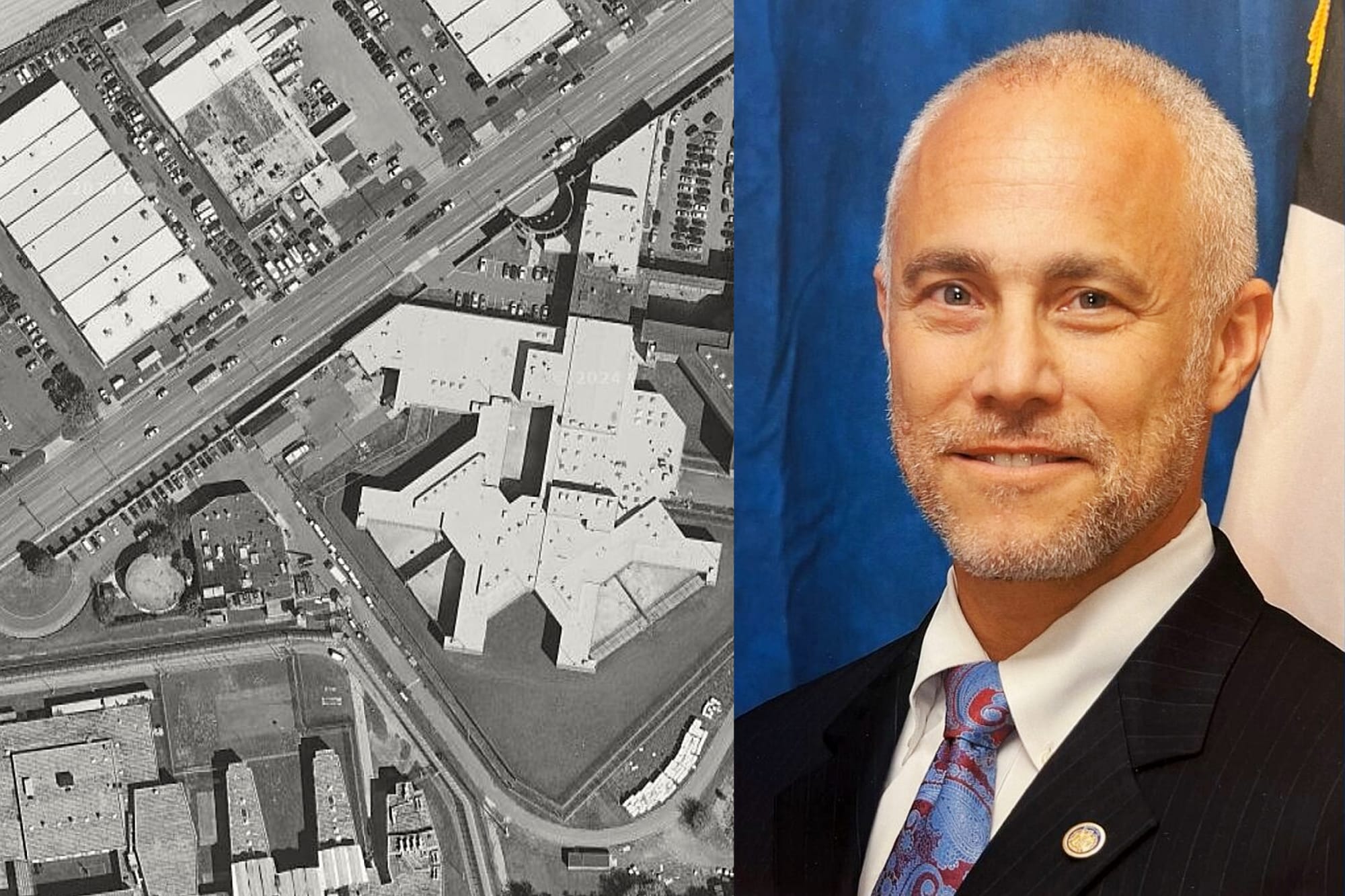
Protestors eventually moved into the halls of the library, where they continued chanting and demanding money for “jobs and education” instead of “mass incarceration.”
The group also named McKinnis, who was found dead in another Philly jail, the Curran-Fromhold Correctional Facility, on Saturday morning.
McKinnis, 61, was found unresponsive in his cell by prison staff, according to a statement from John Mitchell, communications director for the prison department. His unit was left unsupervised overnight, according to the Defenders Association of Philadelphia.
“No guard was assigned to the unit where Mr. McKinnis was housed—an inexcusable but predictable outcome of the well-known guard shortage on State Road,” the Defenders Association wrote in a statement.
The Defenders Association said their organization “has consistently proposed ways to safely reduce the jail population and ease pressure on the staff. We’ve repeatedly called for collaboration and dialogue to develop solutions to end this crisis.”
The medical examiner’s office has not yet released a cause of death for McKinnis, whose family has many of the same questions as Cahill’s.
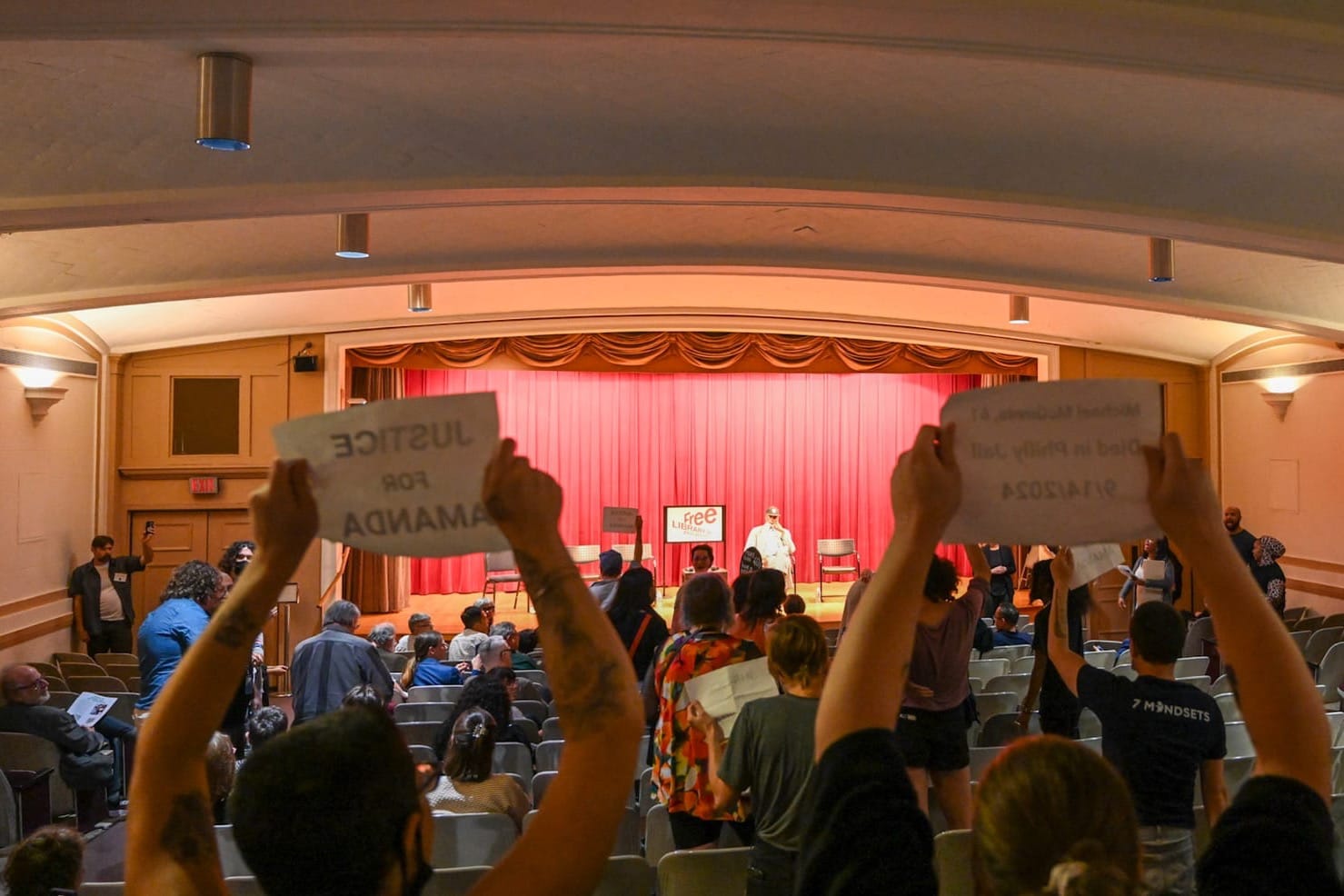
Both deaths point to the recent warnings from many advocates, health and policy experts, the former prison commissioner, and the prison system’s current medical director, about the capacity of Philly’s jails to safely handle an influx of arrests and provide adequate medical care inside already chronically understaffed and over-filled facilities.
The Philadelphia Department of Prisons would not comment in response to the protest.
But Sautner said in a statement to Kensington Voice that “the systems in place often fail to achieve public safety, instead perpetuating inequality and recidivism.”
“The protest regarding the recent death of Amanda Cahill at the Philadelphia Industrial Correctional Center served as a real-time example of the very issues that the program aimed to address,” Sautner added. “It is crucial that we as a society examine why the United States has adopted punishment as its primary response to social ills, and we hope to reschedule the program so that we can have a thoughtful and productive dialogue about these important and timely issues.
Ebony Chambers, mother of 22-year-old Rahsaan Chambers, is suing the city for what she claims was medical neglect that led to her son’s death. The suit alleges that prison staff “ignored the many calls for medical attention made by Mr. Chambers and other people incarcerated on his cell block” for 24 hours. Rahsaan Chambers later was hospitalized and died from complications due to a diabetic event.
In 2024, following a 2020 lawsuit alleging inhumane conditions inside the jails, a federal judge ordered the city to pay $25 million and urgently address staffing shortages.
The mayor’s office has doubled down on its police-centered approach in Kensington — despite repeated calls for a public health approach to the ongoing public health crisis.
“The city will continue to push forward and stabilize conditions in Kensington and other neighborhoods for the people who live there, and that includes using every tool needed that involves prevention, intervention and enforcement, through the Police Department and every other relevant city department,” said Joe Grace, spokesperson for the City of Philadelphia and the Parker administration, in a statement last week.
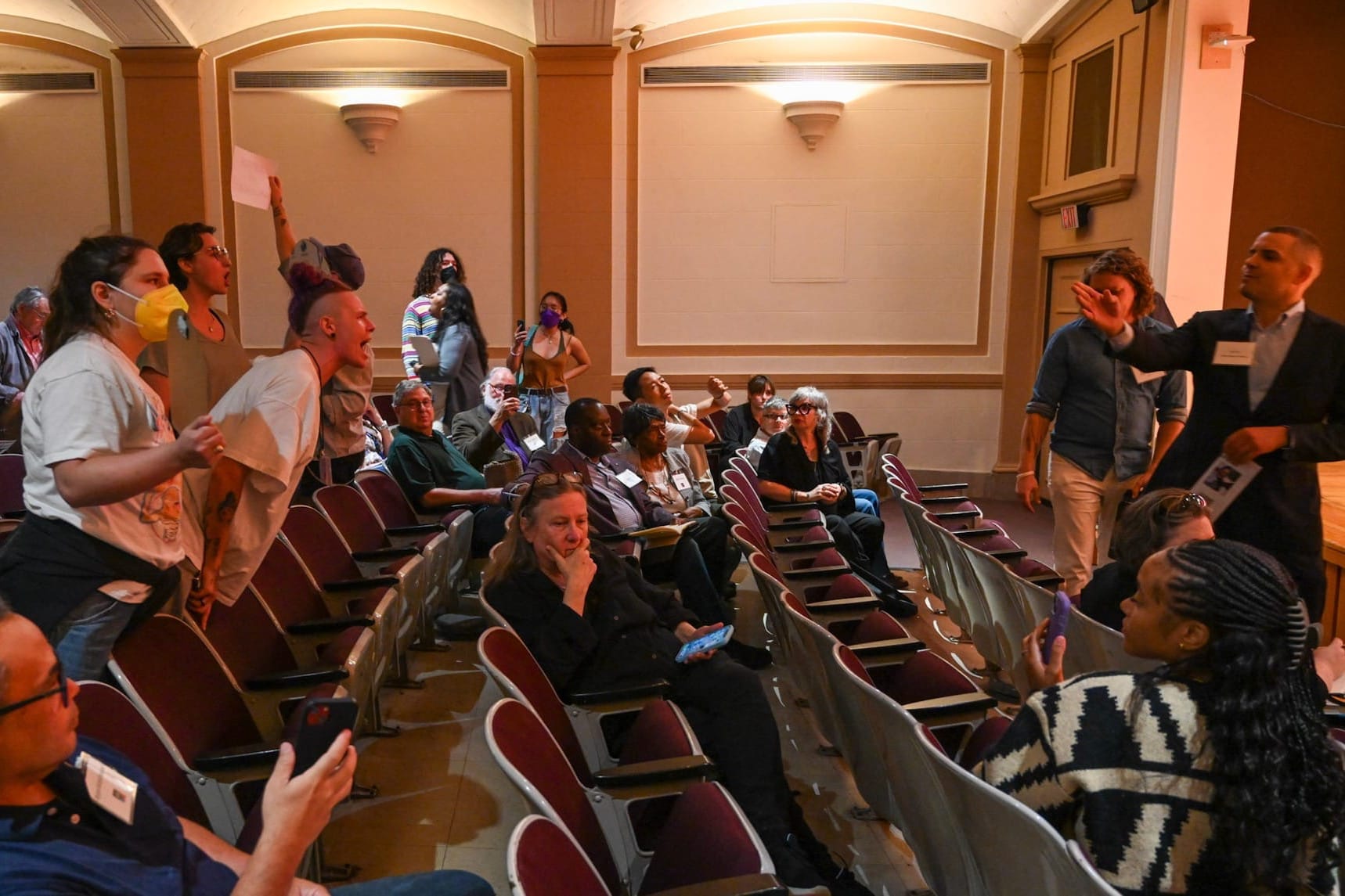
“The time for city leaders to act is overdue. If this lack of urgency continues, more people are going to die in Philly's jails,” the Defenders Association wrote.
Joel Northam, in a short speech to the crowd during Tuesday’s demonstration, said the panel was an attempt at putting a “progressive veneer on the prison industrial complex.”
“We’re not going to let them put a smile on mass incarceration and the slow-motion death of our people,” he said.
Northam pointed to the city’s budget and the spending towards policing and prisons compared to healthcare, education, and libraries, and questioned the city’s priorities.
“Their priorities are murdering our people. We will not let Michael Resnick define the terms for us. We will show out whenever he shows his face and anybody that associates with him is on notice. We will be ending the system of mass incarceration. Old Jim Crow, new Jim Crow,” Northam said.
Prison abolitionists and accountability advocates describe the United States prison system as the “New Jim Crow,” a legalized form of discrimination and racial caste system, which targets Black men and working-class people through the ‘War on Drugs.’
“Kensington needs to be safe... safety is not abusing and murdering our people; safety is providing for our peoples’ needs. If you want to keep people safe, you will invest in healthcare, libraries, after-school programs,” Northam said. “No to the prison industrial complex and hands off our neighborhood Kensington.”

Have any questions, comments, or concerns about this story? Send an email to editors@kensingtonvoice.com.




